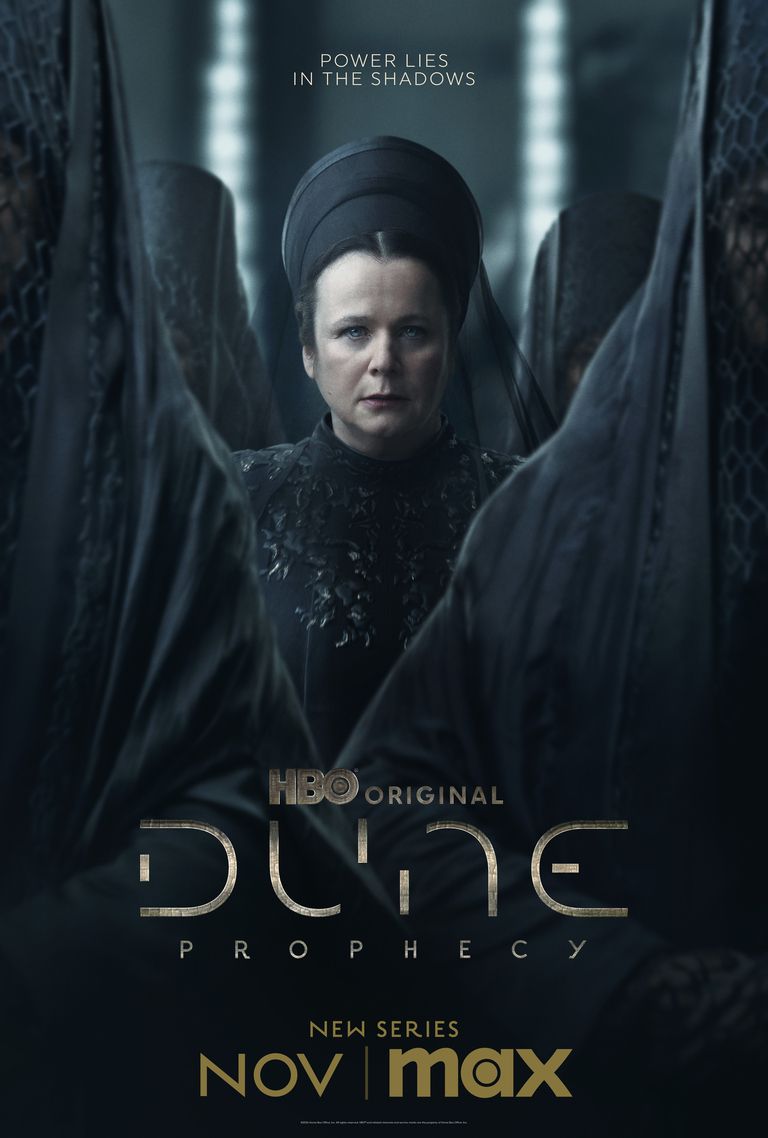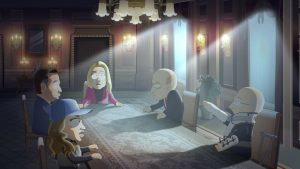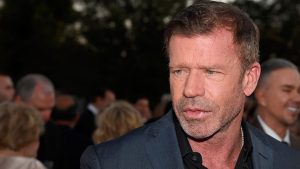
In today’s pop culture landscape, spin-off series have been playing a vital role in keeping franchises alive and engaging for fans in between the release of their main properties, often movies. That’s Dune: Prophecy‘s role, and, although it does have some pacing issues, it has been doing a great job of providing answers to questions that the Denis Villeneuve movies haven’t been able to answer — not because they didn’t want to, but because they couldn’t.
‘Dune: Prophecy’ Explains Vital Aspects of Denis Villeneuve’s Movies
Villeneuve’s Dune movies are fantastic, but they could never touch on everything that makes the universe Frank Herbert created so iconic. Instead, the films skim over some key traits and focuses on Paul Atreides’ (Timothée Chalamet) journey. A lot of questions have been asked since, like “Why are there no computers?” or “Why is the Atreides-Harkonnen feud so important?” or even “How come the Fremen know the Bene Gesserit?”
Those are all fair questions, and it’s in Prophecy that they are all answered. To this end, Dune: Prophecy makes these questions the very center of its story. While the movies have to spend all of their time on Arrakis, for example, in the series we only see it through holograms. The Great Houses of the Landsraad that threaten Paul’s reign at the end of Dune: Part Two are at the center of a conspiracy against the Bene Gesserit, and the Butlerian Jihad still casts a large shadow over everything.
All this gives the series a sense of urgency, because these are the real issues at the center of the characters’ decisions, both from macro and micro perspectives. Machines are at the center of plots and schemes everywhere, from Pruwet Richese’s (Charlie Hodson-Prior) assassination to Tula Harkonnen’s (Olivia Williams) steadfastness in saving Sister Lila (Chloe Lea) using a secret Sisterhood AI.
Related
When Does ‘Dune: Prophecy’ Take Place in the Overall Timeline?
‘Dune: Prophecy’ shapes one of the Dune universe’s biggest conflicts.
‘Dune: Prophecy’ Draws From the Books, but Makes the Movies Its Priority
Like the movies, Prophecy is also based on the novels: it draws directly from Brian Herbert and Kevin J. Anderson‘s Great Schools of Dune prequel trilogy, which is set around the same time as the series. They may not be required reading to understand the original novel, but Prophecy adapts them to complement the movies and provide fans with a more complete overview of why things are the way they are when Paul Atreides rises to power.
Prophecy focuses on the origin of the Bene Gesserit, but with a smart plot that mixes great characters from the novels, like Valya Harkonnen (Emily Watson), with original creations that antagonize them, like Desmond Hart (Travis Fimmel). Their feud is the heartbeat of the show because of how it gives proper answers to questions that were asked when the movies came out. What do the Bene Gesserit really believe in? Could someone secretly use machines for their benefit? Does the average citizen of the Imperium have access to spice? These questions show how complex this universe is, and the answers aren’t simple. Instead of throwing lore at the viewers, Prophecy builds an original plot around them, making these answers all the more exciting to get.
There are plot points that have been taken straight from the books, like the Sisterhood secretly having access to computers, but Prophecy makes good use of them by applying them to its own story. The goal isn’t to simply inform the viewers, but rather to provide connective tissue between the series and the movies in a way that doesn’t feel artificial, and it excels at that. Prophecy is far from perfect, of course, but its issues aren’t different from the ones that have been plaguing most series in today’s streaming context. It is absolutely worth the watch, and Dune fans who have skipped it are certainly missing out.
Dune: Prophecy is available to stream on Max in the U.S. New episodes air weekly on Sundays.






